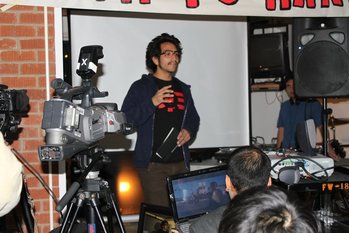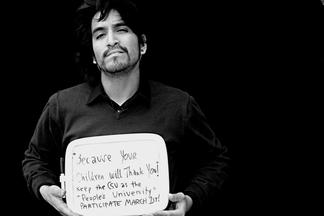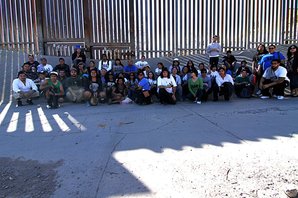These brief overview words were not easily discovered; it took me many disputes with my father, as well as countless hours reading, to disentangle the origins of my own transnational roots. All this to say that I firmly believe myself (along with my unbelieving siblings) to be a product of U.S. Empire. You see, my folks' narrative explains why I grew up fearing the two referenced creatures above. Without access to formal education (my mother reached the 3rd grade, my father made it to middle school), my parents have solidified their worldviews based on the rhetoric (what do you think Jen, would this qualify?) of the neoconservative right. Ronald Reagan and Pat Robertson (among other distasteful beings) are but two examples to the kind of indoctrination I grew up with. Now, victim card aside here, it should be referenced that much of my own journey through Hyrule's light and dark worlds [you know what I mean Rachel & Tiffany! ;)] have been shaped and determined by global forces influential to most, if not all, cornerstones of human societies. I learned to escape the clutches of a literal translated Christian-conservative household by reading (late at night of course, holding a flashlight under the sheets) of how in the world Harry might be able to pass his Potions exam, escape from three-headed dogs, and still find time to consolidate the passions of his heart. (I still think he and Cho were better fit for one another...*sigh*...)
But enough about fears...




 RSS Feed
RSS Feed
